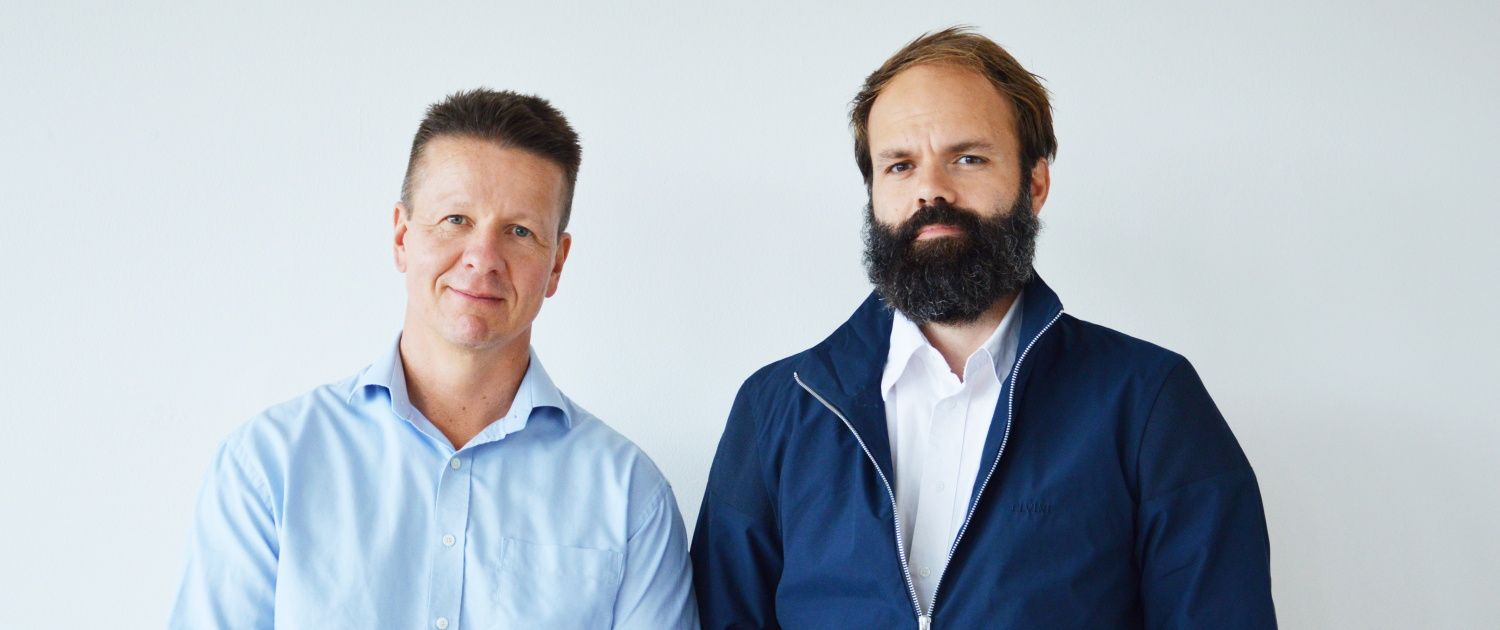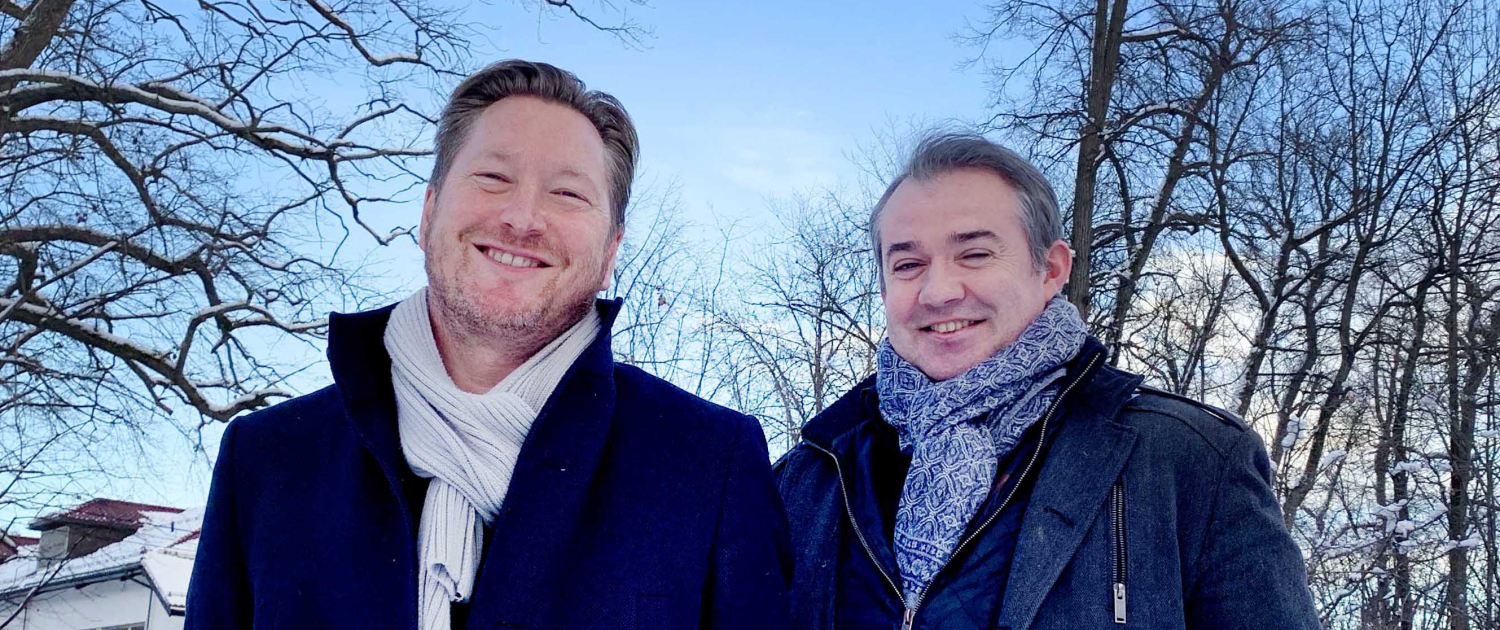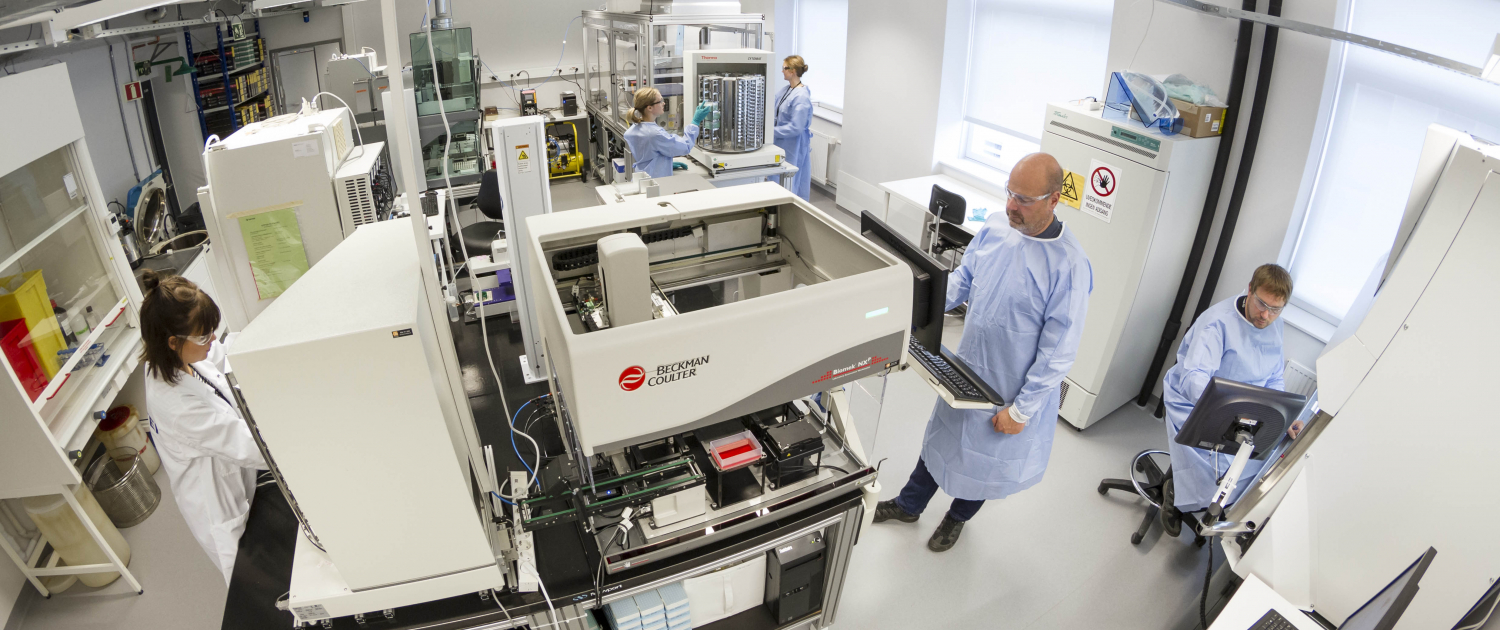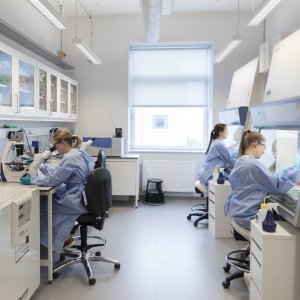Mer til e-helse og sykehus
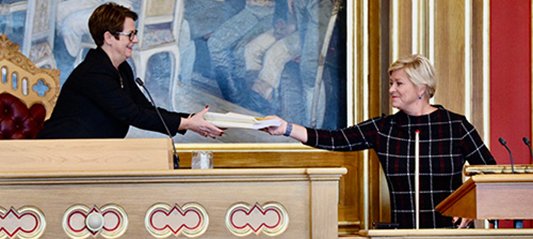
I Statsbudsjettet 2020 foreslår regjeringen flere temaer som er relevante for Oslo Cancer Cluster, blant annet å øke investeringer i e-helseløsninger, satse mer på sykehusene og utvide opsjonsskatteordningen for små oppstartsselskap. Men det står lite konkret om kreft.
– Helse og omsorg har stor plass i budsjettet også til neste år, sa finansminister Siv Jensen i finanstalen hun leverte fra Stortingets talerstol 7. oktober 2019.
Jensen ramset deretter opp satsingsområdene som regjeringen har på helse i Statsbudsjettet 2020:
- mer moderne sykehus med ny teknologi og nye behandlingsformer, flere fastleger og legespesialister
- oppfylle opptrappingsplanen for rusfeltet
- kortere ventetid for pasienter ved sykehusene
- bedre omsorgstjenester
Du kan lese hele finanstalen på regjeringens nettside.
Lite konkret om kreft
Statsbudsjettet 2020 nevner lite konkret om kreft, faktisk bare to punkter.
- Regjeringen foreslår å øke bevilgningene til nasjonalt screeningprogram for tarmkreft med 24,7 millioner kroner i 2020. Det blir en samlet bevilgning på om lag 97 millioner kroner.
- Radiumhospitalet skal videreutvikles som et spesialisert kreftsykehus. Dette nevnes i omtalen av den planlagte sykehusomleggingen i Oslo.
Kliniske studier nevnes ikke spesifikt i Statsbudsjettet 2020.
100 millioner til Gaustad og Aker
Regjeringen foreslår at 100 millioner kroner går til nye sykehus på Aker og Gaustad i Oslo. Samtidig foreslås en låneramme på 29,1 milliarder kroner til prosjektet. Det skal legge til rette for at Helse Sør-Øst og Oslo universitetssykehus kan gå i gang med prosjektering og bygging av et nytt, stort akuttsykehus på Aker og et samlet og komplett regionsykehus inkludert lokalsykehusfunksjoner på Gaustad.
I tillegg foreslås en lånebevilgning til universitetsarealer ved det nye sykehuset i Stavanger.
Satsing på e-helse
Regjeringen foreslår et løft for den nasjonale e-helseutviklingen, med 373 millioner kroner. Dette skal få opp tempoet på digitaliseringen i helsetjenesten og legge til rette for å utnytte norske helsedata bedre.
– Norge har omfattende og verdifulle helsedata som er bygget opp over lang tid. Regjeringen ønsker å gjøre disse lettere tilgjengelig for forskere og andre som har behov for å analysere helsedata. Helseanalyseplattformen vil kutte ned på unødvendig byråkrati og tidstyver. Regjeringen foreslår å øke bevilgningen med 131 millioner kroner, sier helseminister Bent Høie i en pressemelding om temaet.
Regjeringen vil også etablere et «standardisert språk», et kodeverk og terminologi i helse- og omsorgssektoren, for å bedre pasientsikkerhet og skape mer samhandling.
Til sist vil regjeringen øke bevilgningene til modernisering av Folkeregisteret i helse- og omsorgssektoren og til forvaltning og drift av de nasjonale e-helseløsningene kjernejournal, e-resept, helsenorge.no, grunndata og helseID.
Pressemeldingen om satsingen på e-helse kan du lese på regjeringens nettside.
Les mer om prioriteringer i budsjettforslaget for Helse og omsorgsdepartemente på side 25 i Statsbudsjettet 2020.
Dobbelt opsjonsfordel for start-ups
Regjeringen vil utvide ordningen for gunstig skattemessig behandling av opsjoner i små oppstartsselskaper. Maksimal opsjonsfordel per ansatt dobles fra 500 000 kroner til en million kroner. Regjeringen foreslår også å utvide ordningen til å omfatte flere selskap.
I tillegg til at opsjonsfordelen dobles, økes maksimalt antall ansatte i selskap som kan være i ordningen fra 10 til 12. Det gjør at flere små selskap kan benytte ordningen.
Opsjonsskatteordningen for små oppstartsselskap ble innført fra 2018. Under denne ordningen kan ansatte få opsjoner som gir rett til å kjøpe aksjer i selskapet til en fastsatt pris. Ordningen innebærer blant annet at skatteplikten på opsjonene utsettes salg av aksjene kjøpt ved hjelp av opsjonene. Denne skatteutsettelsen er begrenset til en maksimal opsjonsfordel, som nå foreslås doblet.
Utvidelsene må godkjennes av ESA før de kan tre i kraft. Regjeringen opplyser at den jobber for at endringene vil bli godkjent før nyttår, slik at de kan gjelde fra 1. januar 2020.
Flere relevante temaer i Statsbudsjettet
- Skattefunn: Regjeringen foreslår endringer i Skattefunn-ordningen som skal stimulere næringslivet til å investere enda mer i forskning og utvikling (FoU). Forslagene øker den årlige Skattefunn-støtten med 150 millioner kroner fra 2020. Samtidig foreslår regjeringen flere tiltak som gir bedre kontroll med ordningen. Les mer om skattefunnforslaget på regjeringens nettside.
- Protonsenter: 26 millioner foreslås til protonsenter i 2020.
- Fastlegene: Regjeringen foreslår å bruke om lag 350 millioner kroner til å styrke og videreutvikle fastlegeordningen. De varsler flere tiltak for å styrke ordningen i en handlingsplan som skal komme våren 2020.
- Legespesialisering: Regjeringen foreslår 10 millioner kroner til allmennleger i spesialisering (ALIS)-kontor i Bodø, Trondheim, Bergen, Kristiansand og Hamar. Tilskuddet gis for å bistå kommuner i regionen til å planlegge, etablere, inngå og følge opp ALIS-avtaler.
- Statsbudsjettet 2020 er på 1 414,6 milliarder kroner. Staten forventer å tjene 245 milliarder kroner på olje– og gassvirksomheten til neste år.
- Du kan fordype deg i Statsbudsjettet 2020 på regjeringens temaside.


